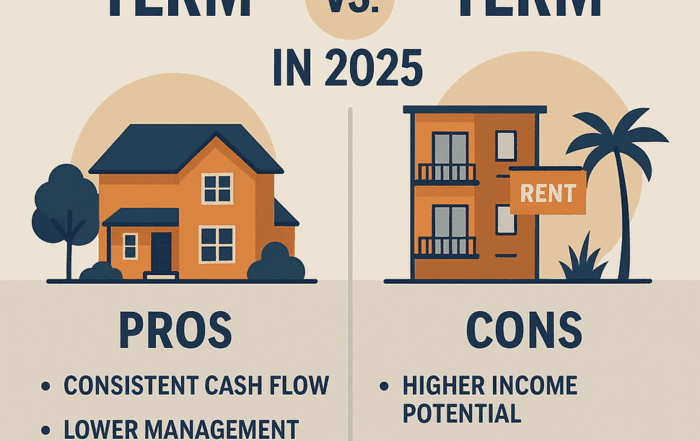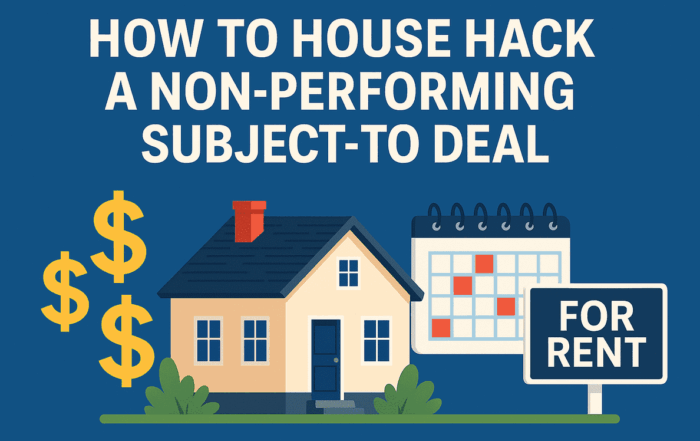
LLCs and Real Estate Agents: What You Need to Know
Introduction: A Broker’s Perspective
After managing agents for over 20 years and currently juggling 50 properties, let me tell you, there’s never a dull moment in this business. One of the most common misconceptions I’ve seen among agents—besides thinking that beige is the answer to all design questions—is the belief they can slap any name on an LLC and start receiving commission checks. Spoiler alert: that’s not how it works in Florida. Let’s dive into this topic, sprinkle in some laughs, and help you navigate the rules like a pro.
What’s the Deal with LLCs for Agents?
In Florida, agents can set up an LLC, PA (Professional Association), or PLLC (Professional Limited Liability Company) to receive commissions. But here’s the kicker: the name of your entity must match your legal name. So if you’re dreaming of calling your LLC something fun like “Sunshine Deals LLC,” think again. You’ll need to stick with something like “John Doe LLC.”
Why the strict naming rules? It boils down to accountability and compliance. The state wants to ensure clients can easily identify who they’re working with. This rule also keeps regulators happy by maintaining transparency in transactions.
Why Agents Think They Can Use Any Name
It’s an easy mistake to make. Agents see brokers with creative company names, and they assume the same rules apply to them. But as a sales associate or broker associate in Florida, you operate under your broker’s license. This means the DBPR (Department of Business and Professional Regulation) has tighter reins on your business structure.
Let me give you an analogy: if brokers are like chefs who run the kitchen, agents are like sous-chefs. You’ve got skills, but you still follow the house rules. If the DBPR allowed random LLC names, it’d be like letting every sous-chef serve their own secret menu. Chaos would ensue, and customers (your clients) wouldn’t know who to trust.
The Rules You Can’t Ignore
-
Name Matching: Your LLC, PA, or PLLC must include your legal name. No exceptions. If your name is Jane Smith, your entity must be something like “Jane Smith LLC.”
-
Licensing Updates: You’ll need to notify the DBPR by submitting Form RE 16, updating your real estate license to include the entity’s name.
-
Payment Rules: All commissions must be paid to the LLC or entity that matches your license. Payments to an unrelated LLC are a big no-no and could land you in hot water with regulators.
-
No DBA Workarounds: Thinking about using a “Doing Business As” (DBA) name? Nice try. While DBAs are common in other industries, they won’t fly for real estate commissions in Florida.
What’s the Why? Liability and Protection
The primary reason for this naming restriction is liability. By requiring your entity to reflect your legal name, the state ensures that you’re directly accountable for your actions. If something goes sideways in a deal (heaven forbid), there’s no hiding behind a generic LLC name. Clients know exactly who to call—whether it’s for a thank-you card or a legal complaint.
On the flip side, forming an LLC under your legal name offers you some protection. If someone sues, they’re suing the LLC, not you personally (assuming you’re following corporate guidelines). This can help shield your personal assets, like your home or car, from business-related lawsuits.
Loopholes? Sorry, Not Many Here
I know what you’re thinking: “There’s gotta be a workaround, right?” Not really. Florida’s laws are pretty cut and dry on this. Your LLC has to align with your name to receive commissions.
The only flexibility you might find is in setting up multiple entities for different purposes. For example, you could have a personal LLC for real estate commissions and a separate LLC for other investments. Just make sure you’re not mixing funds or violating DBPR rules.
A Broker’s Wisdom: Common Pitfalls to Avoid
Over the years, I’ve seen agents trip over the same mistakes. Here are the greatest hits:
- Rushing the Setup: Some agents form an LLC without consulting a professional, only to realize later that the name doesn’t comply. Pro tip: work with a business attorney or CPA to get it right the first time.
- Skipping the Update: Forgetting to notify the DBPR about your LLC can lead to delayed payments and legal headaches.
- Ignoring Taxes: LLCs can offer tax benefits, but only if you’re managing them correctly. Talk to a tax professional to understand your responsibilities.
How to Stay Ahead of the Game
If you want to avoid headaches and set yourself up for success, follow these steps:
- Form Your LLC Properly: Use your legal name and choose a structure that fits your business goals (LLC, PA, or PLLC).
- Update Your License: Submit Form RE 16 to the DBPR as soon as your entity is set up.
- Keep It Clean: Maintain separate bank accounts for your business and personal finances.
Let’s Talk Opportunities
Now that we’ve covered the basics, let’s shift gears. Why stop at being an agent when you could become a consultant? At Graystone Brokerage, we believe in helping agents grow their skills and income potential. Whether it’s mastering advanced investment strategies or learning how to scale your business, we’ve got the tools to help you level up.
Final Thoughts: A Touch of Humor
In this business, rules like these might seem like a hassle. But trust me, they’re here to protect you and your clients. So the next time you dream about naming your LLC “Real Estate Rockstars LLC,” just remember: you’re a star, but your LLC needs to keep it official.
Become more than an agent—become a consultant. Learn advanced strategies and grow your career with us at Graystone Brokerage. Contact us today to get started!
OUR BEST ARTICLES
Can Buying Real Estate in Florida Help You With Immigration?
Jorge Vazquez2025-07-07T18:54:31+00:00July 7th, 2025|Comments Off on Can Buying Real Estate in Florida Help You With Immigration?
Can Buying Real Estate in Florida Help You With Immigration? So you’re wondering, “If I buy a couple rental [...]
Long-Term vs. Short-Term Rentals in 2025: Which Strategy Wins?
Jorge Vazquez2025-07-07T03:10:20+00:00July 7th, 2025|Comments Off on Long-Term vs. Short-Term Rentals in 2025: Which Strategy Wins?
In 2025, the real estate world feels a little like a game show. Behind door one: long-term rentals—steady, reliable, [...]
What Does Cap Rate Mean in Real Estate (And Why I Actually Use It)
Jorge Vazquez2025-07-05T13:43:14+00:00July 5th, 2025|Comments Off on What Does Cap Rate Mean in Real Estate (And Why I Actually Use It)
What Does Cap Rate Mean in Real Estate (And Why I Actually Use It) Alright, I’m gonna break this [...]
Real Estate Investment Analysis: How to Know If a Deal Is Actually Worth It
Jorge Vazquez2025-07-05T13:37:26+00:00July 5th, 2025|Comments Off on Real Estate Investment Analysis: How to Know If a Deal Is Actually Worth It
Real Estate Investment Analysis: How to Know If a Deal Is Actually Worth It You know how some people [...]
What Kind of Passive Income Do You Really Want? (And Why I Still Love Ugly Rentals)
Jorge Vazquez2025-07-04T16:05:15+00:00July 4th, 2025|Comments Off on What Kind of Passive Income Do You Really Want? (And Why I Still Love Ugly Rentals)
What Kind of Passive Income Do You Really Want? (And Why I Still Love Ugly Rentals) You [...]
How to House Hack a Non-Performing Subject-To Deal (and Get Paid to Wait) HNPS
Jorge Vazquez2025-07-03T19:51:05+00:00July 3rd, 2025|Comments Off on How to House Hack a Non-Performing Subject-To Deal (and Get Paid to Wait) HNPS
Ever wanted to buy a house, cash flow from day one, and help someone in trouble—without taking [...]
Meet our Team of Experts!
Meet Marylyn Patankar, Your Property Manager Partner
Hello, I’m Marylyn Patankar, the Field Manager and New Client Ambassador at Graystone Property Management. I educate investors about our perks, onboard new landlord investors, and manage on-site operations. Schedule a meeting with me here: https://graystoneig.com/marylyn
Meet Cody Bergstrom, Your Expert in Finding Deals
My team and I have over 20 years of experience in real estate. We have strong relationships with wholesalers, probate lawyers, sellers, and others in Florida. I aim to align your investments with your vision and deliver exceptional results. Contact Vanessa to schedule a meeting: https://graystoneig.com/cody

Meet Lisa Kaye Price, the LendingGig Top MLO
Lisa-Kaye Price – Real Estate Lending Specialist
With 20 years in real estate, Lisa-Kaye is dedicated to helping clients achieve their investment goals through strategic financing. She and her team focus on securing the best financing solutions to maximize leverage – a unique advantage of real estate investing.
Offering various options, including conventional loans, asset-backed and private money solutions, and programs for foreign nationals, Lisa’s expertise ensures clients get the support they need, whether buying new properties or refinancing.
Schedule a meeting with Lisa: https://graystoneig.com/lisa-kaye-price








